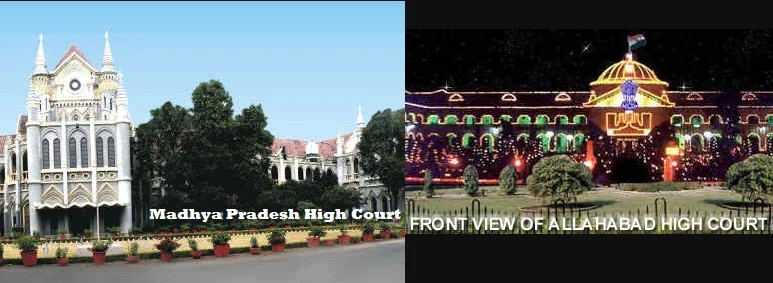NEWS PRISM BUREAU
NEW DELHI: In a stark contrast of views exposing the legal quagmire surrounding interfaith marriages in India, the Madhya Pradesh High Court and Allahabad High Court have taken diametrically opposite stands on the validity of such marriages solemnized under the Special Marriage Act (SMA), 1954.
On May 27, the Madhya Pradesh High Court dismissed the plea of an interfaith couple seeking protection to register their marriage under the SMA. The court held that a marriage between a Muslim man and a Hindu woman would be considered an “irregular” or “fasid” (invalid) marriage under Muslim personal law, even if registered under the SMA.
Justice Gurpal Singh Ahluwalia stated, “As per Mahomedan law, the marriage of a Muslim boy with a girl who is an idolatress or a fire-worshipper, is not a valid marriage. Even if the marriage is registered under the Special Marriage Act, the marriage would be no more a valid marriage and it would be an irregular (fasid) marriage.”
Crucially, the court took this view despite Section 4 of the SMA allowing marriages irrespective of religious status, subject to not violating rules of prohibited relationship.
Just a few days earlier this month, a conflicting viewpoint emerged from the Allahabad High Court. Justice Jyotsna Sharma granted protection to an interfaith live-in couple facing threats, observing that the law permits them to marry under the SMA without conversion.
“In my opinion, marriage through agreement is definitely invalid in law. However, law does not prevent the parties from applying for court marriage under the Special Marriage Act, without conversion,” Justice Sharma ruled.
This remark stands in direct opposition to the MP HC view that an interfaith marriage under the SMA would still be considered invalid as per personal laws.
The crux of the MP HC ruling hinges on the interpretation that the SMA does not override personal laws which govern matters of marriage for respective religious communities. This view has also found support from the Supreme Court in certain past judgments.
For instance, in the 2014 Shamsudeen case cited by the MP HC, the apex court had observed that while rituals may be exempted for SMA marriages, they cannot be solemnized if prohibited by personal laws. However, it did not expressly rule on the validity of an irregular nikah under the SMA.
On the other hand, the Allahabad HC stance aligns with a more liberal interpretation that the SMA, being a secular law, should prevail over personal laws and enable interfaith marriages without the requirement of conversion.
Legal experts have long batted for a codified law to settle this dichotomy, with the SMA itself undergoing amendments in 2012 and 2022 to make it more stringent against fraudulent and forced marriages.

